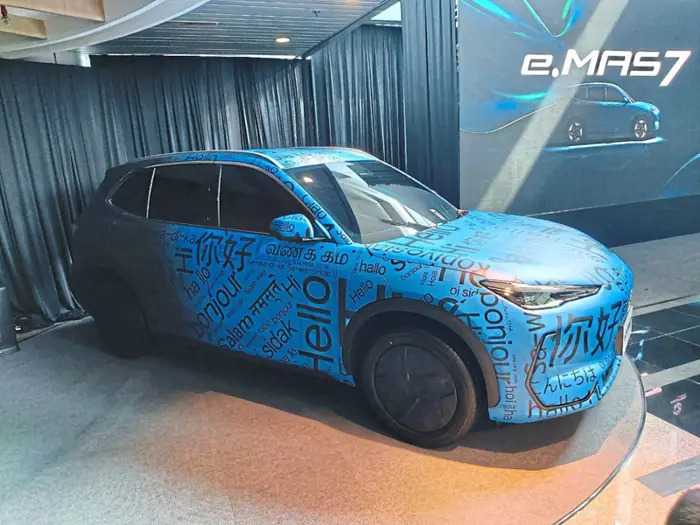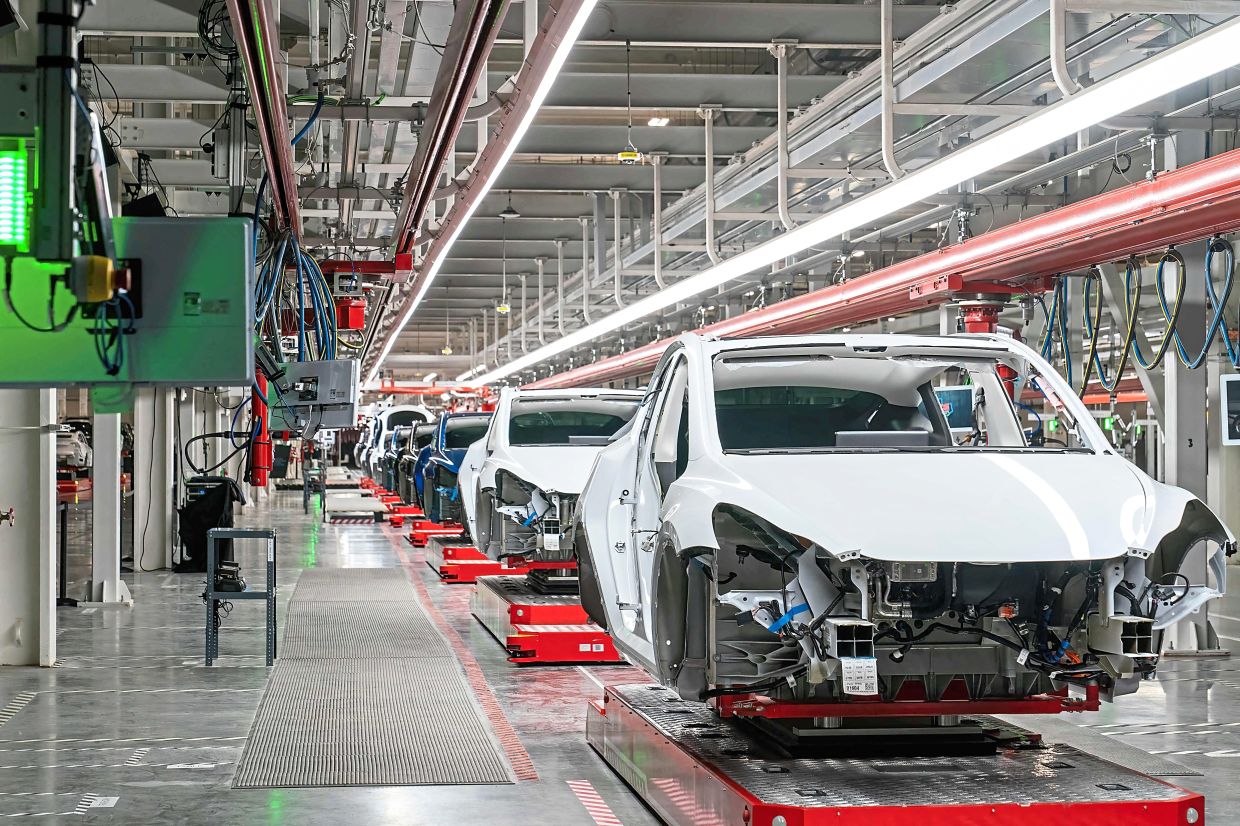
The Proton e.MAS 7 electric SUV was unveiled recently. Let’s axe the X owner and turn our attention to the Chinese, especially Geely, for collaboration as they’re a committed partner who’s here for the long haul, says the writer. — MUHAMAD SHAHRIL ROSLI/The Star
IT’S disappointing that Tesla has opted against investing in Malaysia, Indonesia and Thailand after months of aggressive courting by leaders of these countries of Elon Musk’s electric car brand.
But it’s not surprising since China-made electric vehicles (EV) are already way ahead of the American company in this region.
From 2023, China’s BYD (Build Your Dreams) has become the world’s EV brand of choice, surpassing Tesla.
No doubt, Tesla is perceived as the better brand, but it now plays second fiddle to the Shenzhen-based BYD, the number one EV car in Malaysia.
As a regular visitor to China who has seen EVs on display in their showrooms across the republic, I can safely say these Chinese cars are quality vehicles offering value for money.
Their China-made status doesn’t make these EVs inferior to American or European cars. The days of China products signifying second-rate quality are well and truly consigned to the history books in this fast-paced age we live in.
South China Morning Post reported that BYD has been selling over 8,000 units since last year, 3,000 more than Tesla.
It said that EV sales in South-East Asia are expected to hit between US$80bil (RM354bil) and US$100bil (RM443bil) by 2035, from about US$2bil (RM8.9bil) in 2021, according to a January report by EY-Parthenon, the strategy consulting arm of Ernst & Young.
But while BYD is the best-known Chinese brand for EVs, there are also many other options.
The floor price set by the Malaysian government to protect Proton and Perodua is RM100,000.
If it wasn’t for this policy, Chinese competitors would have flooded the Malaysian market with cheaper options.
Jakarta Post reported that Chinese EV makers such as BYD, SAIC Motor-Corp-owned MG, Nio, GAC Motor, Li Auto, Geely and Chery, collectively controlled 53% of the global market share for EVs in 2023.
“Fierce competition in the EV market has prompted governments in several jurisdictions, particularly the US and the European Union (EU) to enact measures to curb China dominance and protect their domestic industries.”
Instead of contemplating their cost effectiveness, price offers and improving their EV designs, the US has predictably taken the easy way – slapping tariffs on China made EVs by quadrupling the import duties on Chinese EVs by a whopping 100%!
Prime Minister Datuk Seri Anwar Ibrahim is right in believing that intense competition from China rivals had influenced Tesla’s decision.
While Musk took his time to decide when and how to set up shop in Asean, playing hard to get despite the many incentives offered by wooing suitors, he’s ultimately a late comer because China beat him to it.
The SCMP quoted Cassey Lee from the ISEAS-Yusof Ishak Institute saying, “Tesla would be a latecomer in this market, and its EVs are pricier than those from Chinese companies.”

Unsurprising U-turn: Cars on the assembly line at Tesla’s Giga Texas manufacturing facility in Austin. Musk has opted against investing in Malaysia, Indonesia and Thailand after months of aggressive courting by leaders of these countries of his EV brand. — AFP
Tesla’s decision to skip Asean could mean it will miss out on a chunk of the region’s market, said to be worth up to US$100bil (RM443bil) by 2035.
“The global EV industry landscape has intensified, with China solidifying its position as the world champion in the EV space.
“As a result, China experienced a significant surge in the export value of its battery electric vehicles, which quadrupled from US$8.59bil in 2021 to US$34.13bil by 2023,” Jakarta Post reported.
The International Energy Agency reported that China accounted for nearly 60% of new electric car registrations globally in 2023, Europe at 25%, the US at 10%, and the rest of the world for the remaining 5%.
In contrast to the US blanket policy that applies to all EV automakers from China, the EU’s rule imposes a provisional individually tailored increase in tariffs for different manufacturers.
For instance, BYD will face a 17.4% tariff, while Geely and SAIC will be subject to import tariffs of 20% and 38.1%, respectively.
Jakarta Post added that a recent report by Counterpoint Research revealed that Chinese brands accounted for over 70% of EV sales in South-East Asia this year, with BYD leading the market.
“Chinese brands have successfully overtaken Japanese and South Korean brands for the EV space, which have long dominated Southeast Asia’s internal combustion engine car market, as the latter two countries lag in the transition to EVs.”
In Malaysia, Geely has partnered with Malaysian Proton to invest US$10bil (RM44.3bil) to expand its presence in South-East Asia while in Thailand, Chery has plans to set up a factory in Rayong province aiming to produce 50,000 BEV and hybrid EV units in the first phase of production.
Let’s axe the X owner and turn our attention to the Chinese, especially Geely, for collaboration as they’re a committed partner who’s here for the long haul.
The Proton e.MAS7 has already been unveiled and surely, this will be the first of many models that could arrive from 2025.





